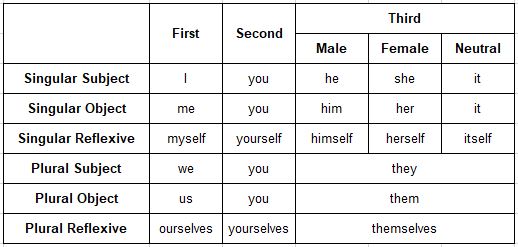Simple Tense - Verb tense tells you when the action happens. There are three main verb tenses: present, past, and future. Each main tense is divided into simple, progressive, perfect, and perfect progressive tenses. - Things to remember about simple tense: a. Present...
English
Trạng từ
Adverbs - Adverbs modify a verb, an adjective, or another adverb. - An adverb tells more about a verb in the sentence. + The fire engine runs fast. + Listen to his speech carefully. + I browse the web frequently. + It rained hard. - An adverb describes more about an...
Tính từ so sánh hơn và so sánh nhất
Comparative and Superlative Adjectives - Comparative adjectives compare two things. Superlative adjectives compare more than two things - Commonly, adjectives that contain only one syllable or end in 'y' use 'er' to form comparatives and 'est' to form superlatives....
Tính từ
Adjectives - Adjectives describe or modify nouns: I like fairy tales. A fairy tale is an imaginary story that has unrealistic characters in a fantastic background. It makes me forget about the real world and refreshes my tired mind. - Adjectives generally appear...
Động từ hành động
Action Verbs - Action verbs express action and are the most common verbs. - Action verbs need s at the end with third-person, singular subjects. He eats bread. She walks to the station. It floats on the sea. - Negative sentences need do not, does not, or did not. I do...
Các động từ ‘Be’
'Be' Verbs - A verb shows action or a state of being. I go home. Home is my place to rest. I like the smell of my house. I feel totally relaxed. Home refreshes me. At home, I get ready for a new day. - "Be" verbs indicate a state of being. - Verbs must match subjects....
Đại từ
Pronouns A pronoun takes the place of a noun. - Example story: Mary is one of the heads of the ToJi Corporation. Mary works with Mr. James and Mr. James' son Tom. Mr. James and Mr. James' son Tom are experts in biochemistry. Mary, Mr. James, and Tom researched and...
Danh từ sở hữu
Possessive Nouns - Possessive nouns are used to indicate ownership. - Possessive nouns usually are formed by adding an apostrophe (') and s. John's book Kerry's car Grandma's mirror - When a noun is plural and ends in s, just add an apostrophe ('). The kids' toys My...
Danh từ đếm được vs danh từ không đếm được
Count Nouns vs Non-Count Nouns Count nouns - Can be counted as one or more. pen, computer, bottle, spoon, desk, cup, television, chair, shoe, finger, flower, camera, stick, balloon, book, table, comb, etc. - Take an s to form the plural. pens, computers, bottles,...
danh từ số ít và số nhiều
Singular and Plural Nouns A noun names a person, place, thing, or idea. Usually, the first page of a grammar book tells you about nouns. Nouns give names of concrete or abstract things in our lives. As babies learn "mom," "dad," or "milk" as their first word, nouns...
Show me the meaning of being lonely
Show me the meaning of being lonely Hãy cho anh biết ý nghĩa của nỗi cô đơn So many words for the broken heart Quá nhiều lời nói cho trái tim tan vỡ này It's hard to see in a crimson love Thật khó để nhận ra khi đang ở trong một tình yêu sâu đậm So hard to breathe...


